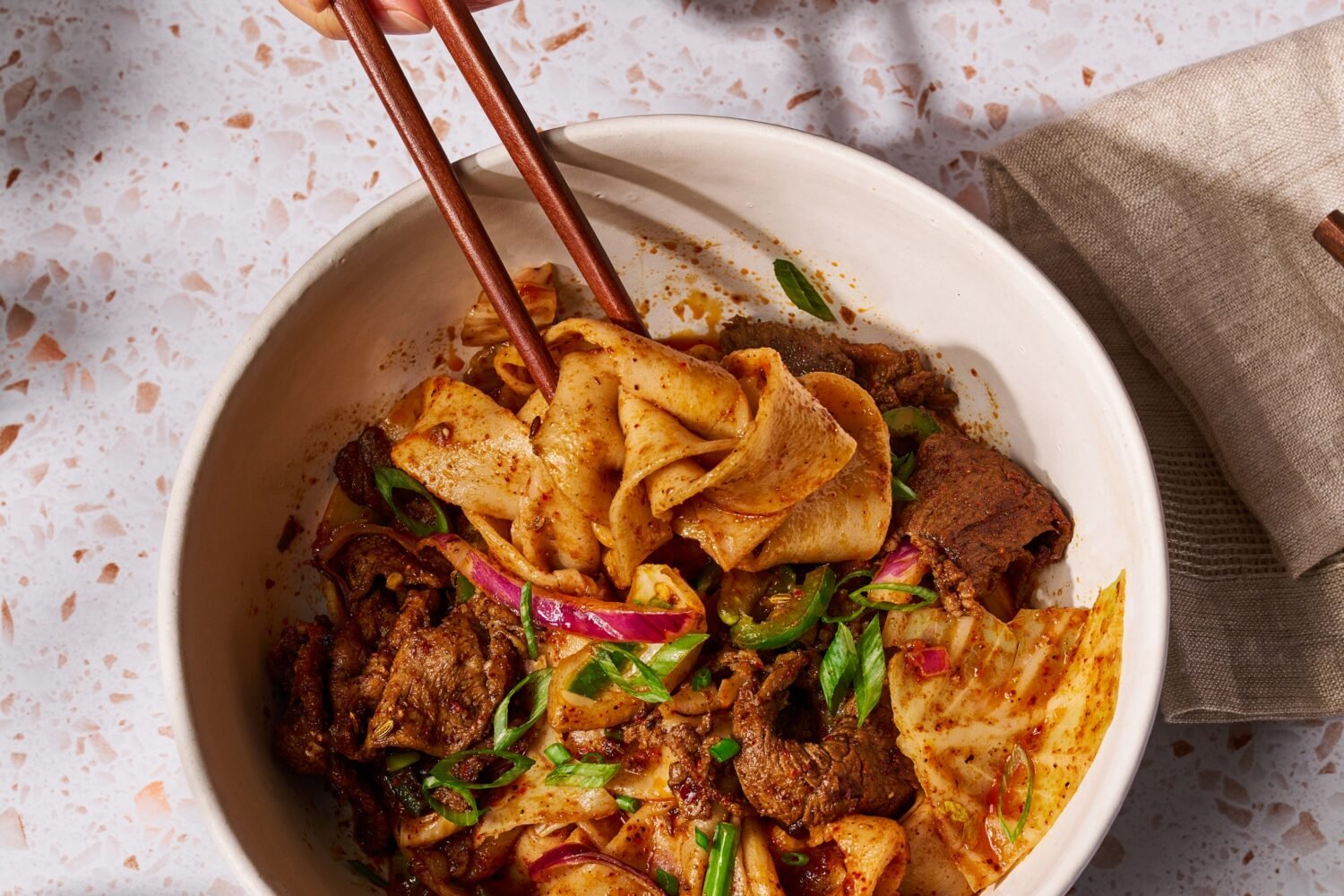Acadiana is Washington's first serious New Orleans restaurant since the closing of the appealing New Orleans Emporium two decades ago, and to judge by the lively, mixed crowds that have descended on a formerly barren stretch of New York Avenue, a lot of people have been pining for somebody to pick up the slack.
Empathy for the victims of Katrina and a lingering nostalgia for New Orleans might have landed the restaurant in the news–a po' boy fundraiser generated a lot of attention–but the rootsy flavors of Louisiana hardly need the sentimental boost. Few regional culinary styles are more accessible or more seductive. And few concepts would seem as ready-made for success in Washington, boasting as it does legions of black residents who migrated from the South and a keen collective appetite for crab, seafood, and fish. You wonder why more chefs haven't tried to make a go of it until now.
Actually, you wonder why chef Jeff Tunks–who manned the stoves for several years at the renowned Windsor Court Hotel in New Orleans and who has brought his pastry chef, David Guas, a Crescent City native, along with him on every one of his ventures–has not tried before, delving into the flavors of Southeastern Asia and Latin America before returning home.
Here's one possible reason: All Washington's other New Orleans themed restaurants shuttered after only a few years.
You can count on Acadiana being around for a while, if only because Tunks's restaurants–DC Coast, TenPenh, and Ceiba–are built to not fail. They're calculated crowd pleasers, managing to slip in enough frills to woo the foodies while serving up big, hulking portions of cooking that, while it nods in the direction of spiciness and gestures toward exoticism, is ultimately meant to comfort and reassure. All this in dining rooms that are bright and bustling and crisscrossed by young servers who exhibit none of the starchiness of more-formal dining. You half expect an alarm to sound on the floor if things should veer too far in one direction or another, so finely calibrated is the formula.
This is their great strength–and their great weakness.
Acadiana doesn't extend Tunks and his group in the sense of broadening their culinary reach; it does, however, extend the empire, reinforcing its aims and refining its methodologies.
As with the start-ups of TenPenh and Ceiba, Tunks and his group again journeyed to the culinary source to research their subject. The field trip included pre-Katrina visits to Galatoire's and Commander's Palace, the grandes dames of New Orleans's fabled restaurant scene, as well as to such legendary haunts as Uglesich's and K Paul's and more than a dozen others.
The restaurant they have fashioned from these sojourns is intended as an homage to the great restaurants of New Orleans, but it also comes across as an homage to, well, DC Coast, TenPenh, and Ceiba. The design sets the tone. There are bauble-clad chandeliers and dark wooden shutters and patterned Victorian-style banquettes, but the dominant impression is of a sleekly modern space that verges on a kind of hotel coldness.
And for all its outside inspiration, the menu does a lot of aping of its predecessors. There's the foie gras appetizer (here the seared lobe of duck liver is matched up with a thick slice of eggy pain perdu and a mayhaw jelly sauce so sticky and runny and sweet you'll think you're eating a savory French toast), the whole grilled fish (a dull snapper drenched in its over-buttery sauce meunière), the slab of seared yellowfin tuna (blackened but unaccountably dull), and the pan-seared crab cakes.
There's a sense of the machinery at work in these dishes, the grinding of gears as Tunks and his crew attempt to shape and fit the parts together to accommodate their formula. Too often, the grace notes end up supplanting the main course for your affections. The cheddar spoonbread is as soft and luscious as the seared tuna is tough and chewy. The freshly shorn corn delivers the sweetness and texture you expected from the crab cakes–the North Carolina jumbo lump is oddly flavorless.
This is not bold, palate-pushing food. If you're expecting the heady, mouth-warming piquancy that Cajun cooking can deliver, look elsewhere. One of the tenets of the Tunks formula is to strip the indigenous cuisine of some of its layers of spice and heat–the better to attract a wide audience–while sacrificing none of the buttery, creamy richness that his audience has come to count on. Or, in this case, to reconfigure the bold backwoodsy flavors of Cajun cooking for a mass urbanized audience. There's no stinting, however, when it comes to the cocktail list: A pepper-infused vodka fires up a bloody mary served in a glass rimmed with cajun spice, and the mint julep is as potent as any in town.
Where Acadiana succeeds is in meeting the bayou on its own terms. Tangy thick-cut fried green tomatoes boast a surprisingly delicate, lacy coating, and the shrimp rémoulade is given an extra shot of ketchup, a coy reminder of the source of the tomato's sweetness. Deviled eggs make a soft, creamy pedestal for the likes of caviar, crabmeat ravigote (lumps of crab in a tangy red sauce), and shrimp rémoulade–though the $7 price for these nibbles is steep–and a plate of lightly fried meat pies, with a peppery buttermilk dipping sauce on the side, is tasty if tame.
Oysters are as essential to bayou cooking as red beans, and Tunks turns up consistently good product–fat, briny, and faintly metallic. The only disappointment is the oysters Rockefeller soup, with its thin, depthless broth–the weakest of a trio of soups that includes a good gumbo and a sherry-sharpened turtle soup. A gratin is an ideal showcase for these plump bivalves–puncture the blistered cover and spear one from the cheesy, ham-and-artichoke-fortified depths. Nearly as good is a platter of oysters lightly broiled on the half shell, a bath of garlicky butter and Parmesan bubbling up around them. Long after the meat has been prized from the shells, the dish keeps on giving: Torn-off hunks of warm, crusty bread from Leidenheimers–the famed New Orleans bakery–are a terrific mop for the remaining sauce.
Those loaves also arrive with the barbecued shrimp, a dish that originated at Pascal's Manale and has been copied by nearly every New Orleans restaurant great and small. Barbecue is a misnomer. There's no grilling involved here, nor any dark, smoky sauce–just an inglorious amount of butter, lots of garlic, and enough fresh rosemary to give the dish a weedy depth. This rendition of the classic is more respectful than lusty, although the inclusion of heads-on shrimp is a welcome surprise given that Acadiana's creators are so intent on being user-friendly at the table.
Likewise, a duck breast, compact and elegant, would have been the much more obvious choice, easier for the diner to disassemble, but you have to respect the desire here to stay true to the original inspiration with a rustic, country-style preparation of whole duck bathed in a cane-syrup and pepper-jelly glaze. Still, the dish is more remarkable for its size–did those research trips turn up some species the rest of us don't know about?–than its savor.
Aunt Boo's Fish Camp Crawfish Stew is similarly direct and satisfying, its roux stirred to a darkness that haunts but doesn't overpower, its generous allotment of crawfish fat and sweet. The dish doesn't need the faux-homey tag to lend it authenticity. The point is made by the cooking. But Acadiana wants it both ways: It wants to be thought of as soulful and rootsy while it treats you to an experience as clean and controlled and far from the swamp as you can get. It wants you to think its dishes are the product of a pure homespun sensibility even as it shows you the trail of its research.
In the expanding empire of Jeff Tunks, everything is reconciled, every seeming contradiction dissolved and synthesized into a malleable, endlessly replicable formula. Foie gras and fish fries, exoticism and accessibility, DC and New Orleans.











